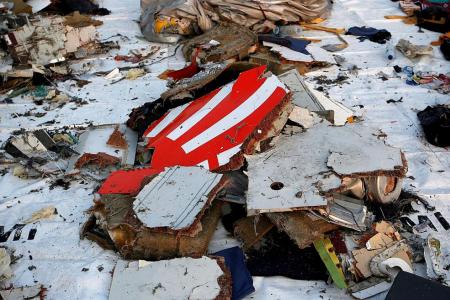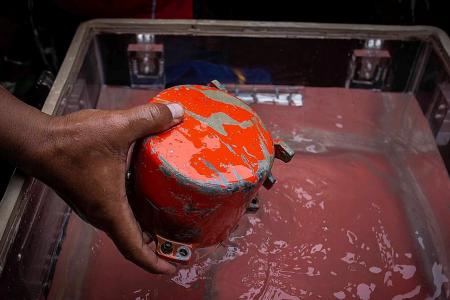Cockpit voice recorder reveals Lion Air pilots' frantic search for fix
Pilots of doomed plane searched handbook for fix before fatal crash
JAKARTA/SINGAPORE/PARIS : The pilots of a doomed Lion Air Boeing 737 Max scoured a handbook as they struggled to understand why the jet was lurching downwards, but ran out of time before it hit the water, three people with knowledge of the cockpit voice recorder contents said.
The probe into the crash, which killed all 189 people on board in October, has taken on new relevance as the US Federal Aviation Administration and other regulators grounded the model last week after a deadly accident in Ethiopia.
Bloomberg, quoting sources, reported that US federal authorities have begun a criminal probe of the certification process for the new 737 Max planes.
Investigators examining the Indonesian crash are considering how a computer ordered the plane to dive in response to data from a faulty sensor and whether the pilots had enough training to respond appropriately to the emergency, among other factors.
This is the first time the voice recorder contents from the Lion Air flight have been made public. Three sources discussed them on condition of anonymity.
The captain was at the controls of Lion Air flight JT610 when the nearly new jet took off from Jakarta, and the first officer was handling the radio, according to a preliminary report issued in November.
Two minutes into the flight, the first officer reported a "flight control problem" to air traffic control and said the pilots intended to maintain an altitude of 5,00 feet (1,524m), the November report said.
One source said airspeed was mentioned on the cockpit voice recording, and a second source said an indicator showed a problem on the captain's display but not the first officer's.
The captain asked the first officer to check the quick reference handbook, which contains checklists for abnormal events, the first source said.
For the next nine minutes, the jet warned pilots it was in a stall and pushed the nose down in response, the report showed. A stall is when the airflow over a plane's wings is too weak to generate lift and keep it flying.
The captain fought to climb, but the computer, still incorrectly sensing a stall, continued to push the nose down.
Boeing has said there is a documented procedure to handle the situation. A different crew on the same plane the evening before encountered the problem but solved it after running through three checklists, showed the November report.
But they did not pass on all of the information to the next crew, the report said.
The pilots of JT610 remained calm for most of the flight, the three sources said. Near the end, the captain asked the first officer to fly while he checked the manual for a solution.
About a minute before the plane disappeared from radar, the captain asked air traffic control to clear other traffic below 3,000 feet and requested an altitude of "five thou", or 5,000 feet, which was approved.
As the 31-year-old captain tried in vain to find the right procedure, the 41-year-old first officer was unable to control the plane, two of the sources said.
The captain was silent at the end, all three sources said, while the first officer said "Allahu Akbar", or "God is greatest".
The plane hit the water, killing everyone on board.- REUTERS
Get The New Paper on your phone with the free TNP app. Download from the Apple App Store or Google Play Store now




